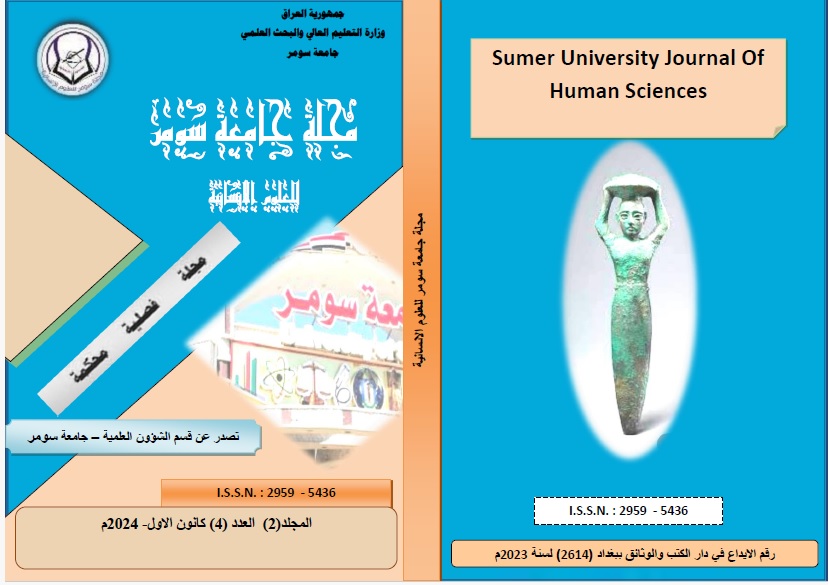Rebellions During the Abbasid Era Under the Caliphate of Al-Wathiq and Al-Mutawakkil (227 - 247 AH / 862 - 842 AD).
Abstract
During the reign of Caliph Al-Wathiq Billah, the Abbasid state experienced a period of relative stability alongside significant political and religious challenges. Politically, Caliph Al-Wathiq continued to strengthen the role of the Turks in the army, which increased their influence in the state and complicated the management of governance affairs. Al-Wathiq also supported the Mutazilites doctrine and continued to implement the policy of the creation of the Quran, which sparked widespread controversy and created tensions between scholars and society, especially between Sunnis and Mutazilites. Socially, Al-Wathiq had a notable impact on economic conditions. The country has faced some challenges such as corruption and high taxes that have affected people's livelihoods. Despite the religious tensions, the cultural and scientific life in Baghdad continued to thrive. The caliph Al-Wathiq supported scholars and thinkers who aligned with his views. However, the gap between social classes widened, and the public suffered from economic and social pressures. The reign of Al-Mutawakkil Billah was dominated by political and religious tensions, but it also witnessed a continuation of cultural
and scientific development in Baghdad which justifies the contradictions and challenges faced by the Abbasid state during that period.


